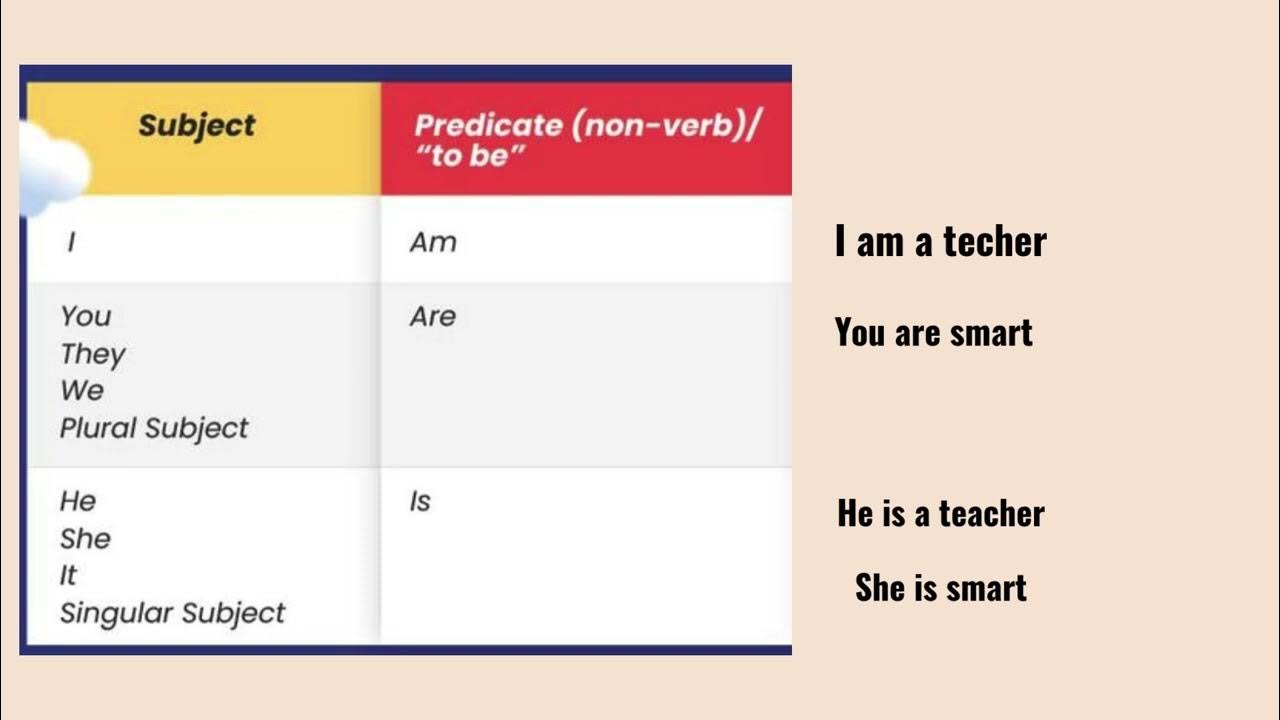study english
Summary
TLDRThe transcript discusses the rules of verb forms in English, emphasizing the importance of using the correct verb forms with auxiliary verbs like 'to be.' It covers concepts such as present participles and passive voice, explaining how to identify and apply them correctly in sentences. Through examples, it highlights common mistakes and clarifies the distinction between active and passive structures. The session encourages students to engage with the material by referencing their textbooks and correcting errors in sentence construction, ultimately reinforcing their understanding of verb usage in English.
Takeaways
- 😀 Correct verb forms are essential after the verb 'to be' in sentences.
- 📝 Present continuous tense uses 'to be' + verb-ing, e.g., 'They are turning on the lights.'
- ❌ Common mistake: using simple verb forms instead of continuous forms after 'to be.'
- 🔄 Passive voice focuses on the action rather than the subject performing it.
- 🗂️ The passive voice structure is 'to be' + past participle, e.g., 'The pie was cut.'
- ⚠️ Always ensure the verb form matches the intended meaning to avoid confusion.
- 📚 Example of incorrect usage: 'was study'; correct form: 'was studying.'
- ✂️ The past participle indicates that an action has been completed on the subject.
- 🔍 Understanding verb forms helps in mastering English grammar.
- 🤔 Clarifying when to use passive constructions is key to effective communication.
Q & A
What are the types of verb forms mentioned in the script?
-The script mentions the present participle, also referred to as 'verb in -ing' form, and the past participle, known as 'verb 3'.
What is the rule regarding the verb form following 'to be'?
-'To be' must be followed by a verb in the correct form, which can either be the continuous form (verb in -ing) or the passive voice form (verb 3).
Can you give an example of a correct usage of the continuous form?
-An example provided in the script is 'They are turning on all the lights,' which correctly uses the continuous form.
What was incorrect in the sentence 'was study the textbook all night long'?
-The sentence was incorrect because it should have been 'was studying the textbook all night long,' using the continuous form.
How does the script illustrate passive voice?
-The script illustrates passive voice with the example 'the pie was cut into six equal pieces,' showing the correct use of verb 3.
What concept does 'passive' refer to in the context of the script?
-In the script, 'passive' refers to a grammatical structure where the subject of the sentence is acted upon rather than performing the action.
What was the key takeaway regarding verb forms and their functions?
-The key takeaway is that verb forms must align with the intended action in the sentence, either indicating an ongoing action (continuous) or an action received (passive).
What type of learners is emphasized in the script?
-The script emphasizes that only 'believers' can understand the concepts being discussed, highlighting a specific audience.
How does the script approach corrections in grammatical structure?
-The script approaches corrections by identifying errors in sentences and demonstrating the correct form, ensuring clarity in grammar.
What examples of passive constructions does the script provide?
-The script provides examples like 'the bakso is eaten' and 'the ball is thrown' to demonstrate how passive constructions work.
Outlines

このセクションは有料ユーザー限定です。 アクセスするには、アップグレードをお願いします。
今すぐアップグレードMindmap

このセクションは有料ユーザー限定です。 アクセスするには、アップグレードをお願いします。
今すぐアップグレードKeywords

このセクションは有料ユーザー限定です。 アクセスするには、アップグレードをお願いします。
今すぐアップグレードHighlights

このセクションは有料ユーザー限定です。 アクセスするには、アップグレードをお願いします。
今すぐアップグレードTranscripts

このセクションは有料ユーザー限定です。 アクセスするには、アップグレードをお願いします。
今すぐアップグレード5.0 / 5 (0 votes)






